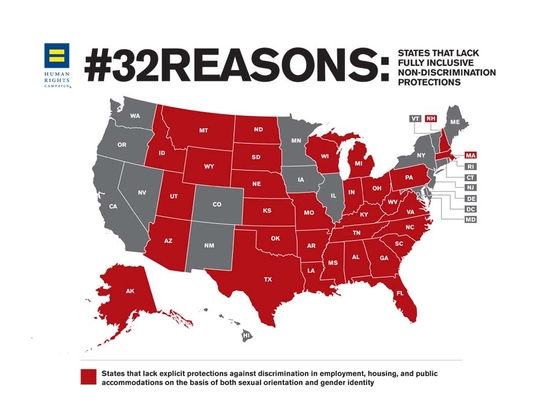LGBTQ+: Don’t expect us to disappear

by Robin Dorner
Editor in Chief
Last month, Dr. Wallace K. Swan, a leading scholar on LGBTQ public policy issues in the nation was guest speaker at the University of Central Oklahoma (UCO), Edmond, titled LGBTQ+ Public Administration & Policy: Then, Now, & What is Next?
The presentation included key factors in LGBTQ+ public policy, both from an historical point of view, from the viewpoint of recent advances in national, state and local public policy and the challenges we face in upcoming years.
“We are living in a new political and economic environment,” said Swan. “Among many pro-LGBTQ+ issues, the Obama administration made it possible for LGBTQ+ equality with such things as the Affordable Care Act and signing an executive order preventing discrimination for LGBT federal employees.”
In Edmond, OK last month, a panel answered questions after author and educator Dr. Wallace Swan’s presentation. Others on the panel, (l to r) Troy Stevenson, Gabi Glidewell, Swan & James Cooper. Photo by Robin Dorner.
Further, in 2016 President Obama recognized LGBTQ history designating a new national monument at the historic site of the Stonewall Uprising in New York City.
However, on Jan. 21 of this year, all LGBTQ weblinks were removed from www.whitehouse.gov. The day after the inauguration of the 45th President, Donald J. Trump.
“Trying to make the LGBTQ+ community disappear is not the best way to approach us,” Swan asserted.
“I’m already seeing a major LGBTQ+ march planned on Washington for the weekend of DC Pride on June 10.
“The way to move the ball forward is to keep pushing,” Swan added, pointing to the #32REASONS map which highlights the states lacking fully inclusive no-discriminations protections (pictured here).
“Those are the states that don’t give the rights and who the majority voted for this president [Trump].”
“Hate crime and discrimination are more prevalent in these disempowered states,” Swan pointed out. “The percentage of LGBTQ+ members in disempowered states are less and it’s a fact that lower income people do not vote as much as those with higher incomes.”
All five states in The Gayly region - Arkansas, Kansas, Missouri, Oklahoma and Texas - are among these “disempowered” states.
Swan points out other key issues defined in his book, Gay, Lesbian, Bisexual and Transgender Civil Rights. “The book documents a whole wide variety of professional fields where inequality has been the case - K-12 and higher education, senior issues, health, criminal justice, homelessness, family formation among many others.”
Swan’s background includes teaching experience at Metropolitan State University, University of St. Thomas, Nova Southeastern University, Walden University, Hamline University, Western International University, and University of Electronic Science and Technology of China as well as over 30 years of government experience at the city, county and state levels.
Additionally, he was the first openly gay man to be elected to a city office in Minneapolis, Minn.
Prior to the panel discussion following his presentation, Swan encouraged listeners to “choose a strategy you support and get involved! One individual by themselves has little influence.”
A post-presentation panel included Swan and Oklahoma City LGBTQ+ community leaders Troy Stevenson, Gabi Glidewell and James Cooper.
Stevenson, who is the executive director of LGBTQ advocacy group Freedom Oklahoma, said, “The most important thing you can do is be present. The reason LGBTQ rights have come so far in the past years is for people to stay in your own your community and just be present. You don’t know what your honesty in coming out can mean to someone struggling.
“Just be who you are.”
Stevenson stressed the need for not only diversity but also inclusivity. “There are consequences of losing good community leaders because they are not supported by their community at large.
“It’s climate and culture society that we must create. Our most successful communities support inclusivity as well as diversity,” he said.
Glidewell serves as the president for the UCO group, SAFE (Student Alliance For Equality). She emphasized that erasure is not just a problem for refuges but for all marginalized communities.
“Even as the head of the campus LGBT group, there is some backlash.” Despite that, she said “all voices must be heard.
“No community should be marginalized.”
Community leader James Cooper, who has studied LGBTQ+ history for many years, said, “And these changes are similar to when Stalin took over Russia, then Hitler.
“They do not believe in LGBT rights. Some people who are gay who are stoned in their countries just for being gay. We are in that sort of existential battle now.
“We need to make sure we are hearing all voices,” Cooper said.
So, what is next, you ask?
Swan said, “These are monumental times for the LGBTQ+ community. Empower yourself with knowledge. Vote. Become involved in your community.
“Be present.”
For more information on Swan’s book, “Gay, Lesbian, Bisexual, and Transgender Civil Rights: A Public Policy Agenda for Uniting a Divided America (Sep 25, 2014), visit Amazon.com.
_
Coptright 2017 The Gayly - 3/9/2017 @ 7:57 a.m. CDT





